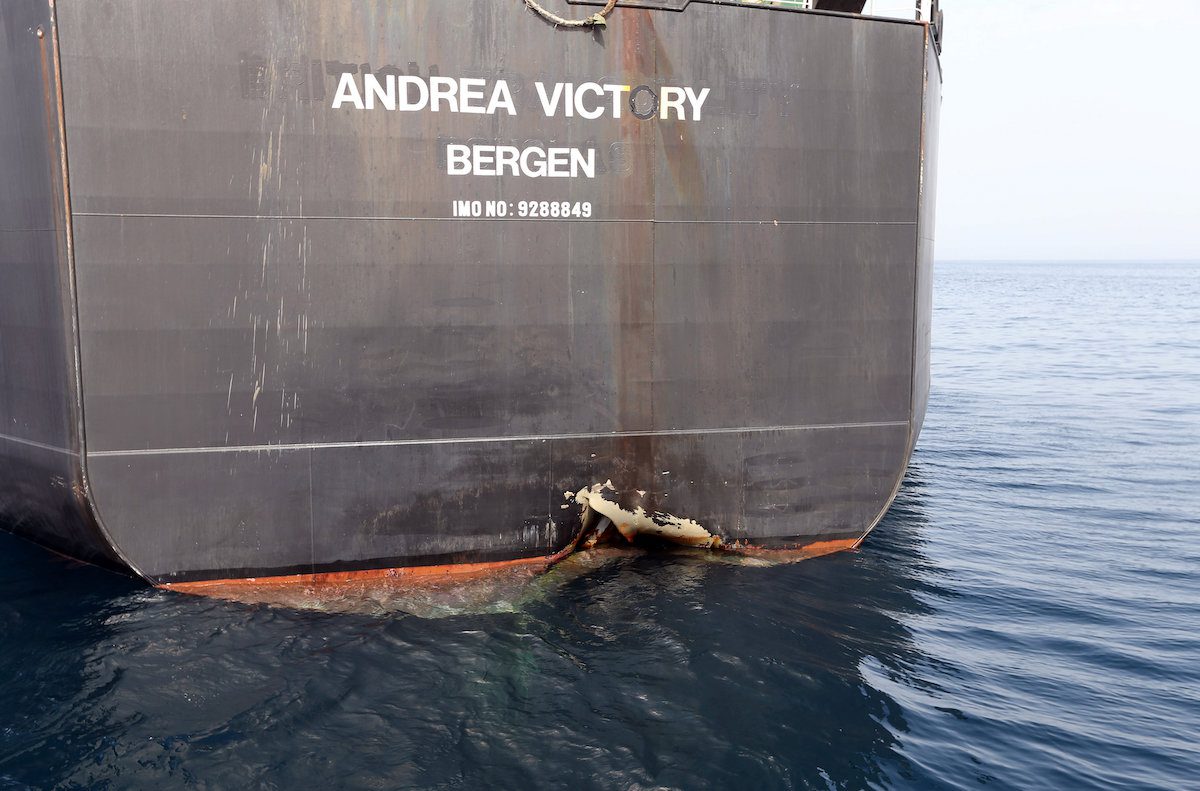A damaged Andrea Victory ship is seen off the Port of Fujairah, United Arab Emirates, May 13, 2019. REUTERS/Satish Kumar
 By Mark Hosenball WASHINGTON, May 15 (Reuters) – U.S. officials believe Iran encouraged Houthi militants or Iraq-based Shi’ite militias to carry out Sunday’s attacks on four tankers near the Strait of Hormuz, two U.S. government sources said on Wednesday.
By Mark Hosenball WASHINGTON, May 15 (Reuters) – U.S. officials believe Iran encouraged Houthi militants or Iraq-based Shi’ite militias to carry out Sunday’s attacks on four tankers near the Strait of Hormuz, two U.S. government sources said on Wednesday.
The sources, who spoke on condition of anonymity and who are familiar with U.S. national security assessments, said they viewed the attacks as a serious provocation by Iran which posed a significant threat to shipping.
Iran rejects the allegation of Iranian involvement and Iranian Foreign Minister Mohammad Javad Zarif has said that “extremist individuals” in the U.S. government were pursuing dangerous policies. No one has claimed responsibility for the tanker attacks.
One source said U.S. government experts believe Iran gave its “blessing” to the operations, which hit two Saudi crude oil tankers, a UAE-flagged fuel bunker barge and a Norwegian-registered oil products tanker near Fujairah, one of the world’s largest bunkering hubs just outside the Strait of Hormuz.
This source said the United States believes the Iranian role has been one of actively encouraging militants to undertake such actions and went beyond simply dropping hints. However, the source indicated the United States does not now have evidence that Iranian personnel played any direct operational role.
A fifth of the oil consumed in the world passes through the Strait of Hormuz en route from Gulf crude producers to much of the globe.
A Saudi-led coalition has been fighting the Houthis for four years in Yemen to try to restore the internationally recognized government in a conflict widely seen as a Saudi-Iran proxy war.
The attacks occurred against a background of tensions between the United States and Iran over Iranian nuclear capabilities, its missile program and its support for proxies in Yemen, Iraq, Syria and Lebanon. Washington ordered the departure of non-emergency American employees from its diplomatic missions in Iraq on Wednesday in another apparent show of concern about what it describes as threats from Iran.
On Tuesday, a U.S. official had said U.S. national security agencies believed proxies sympathetic to or working for Iran may have attacked four tankers rather than Iranian forces themselves.
While that official had said perpetrators might include Houthi rebels or Iraq-based Shi’ite militias, the official said Washington did not have hard evidence on who struck the vessels and did not go so far as to say Iran had encouraged them to act. (Reporting By Mark Hosenball; Writing by Arshad Mohammed; Editing by Mary Milliken and Grant McCool)
(c) Copyright Thomson Reuters 2019.

 Join The Club
Join The Club











